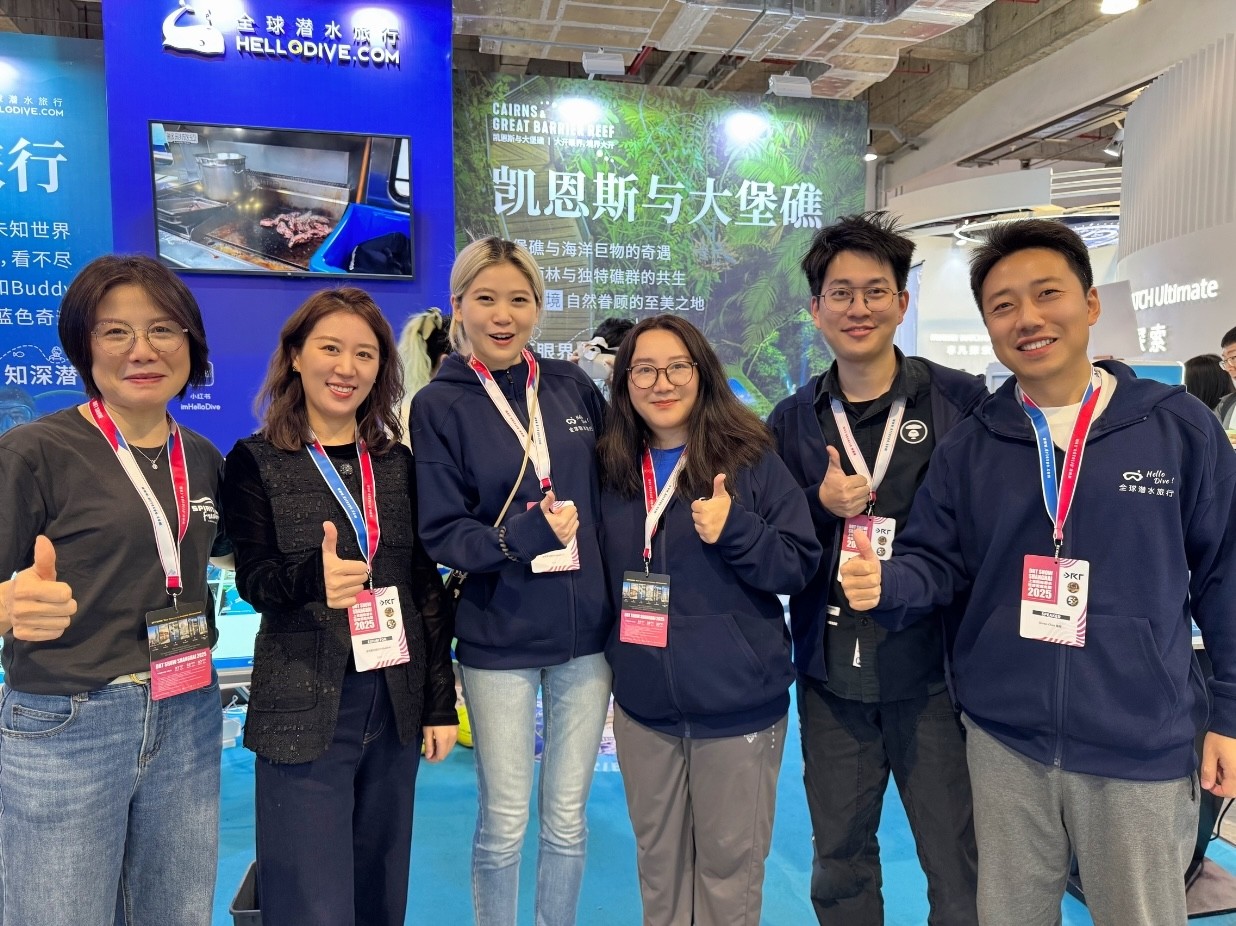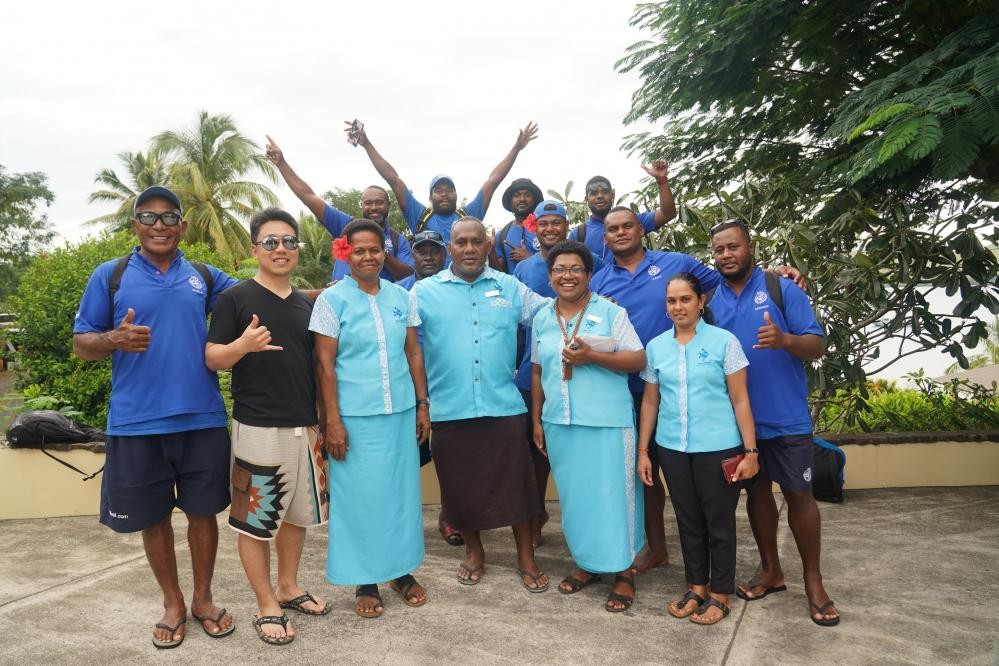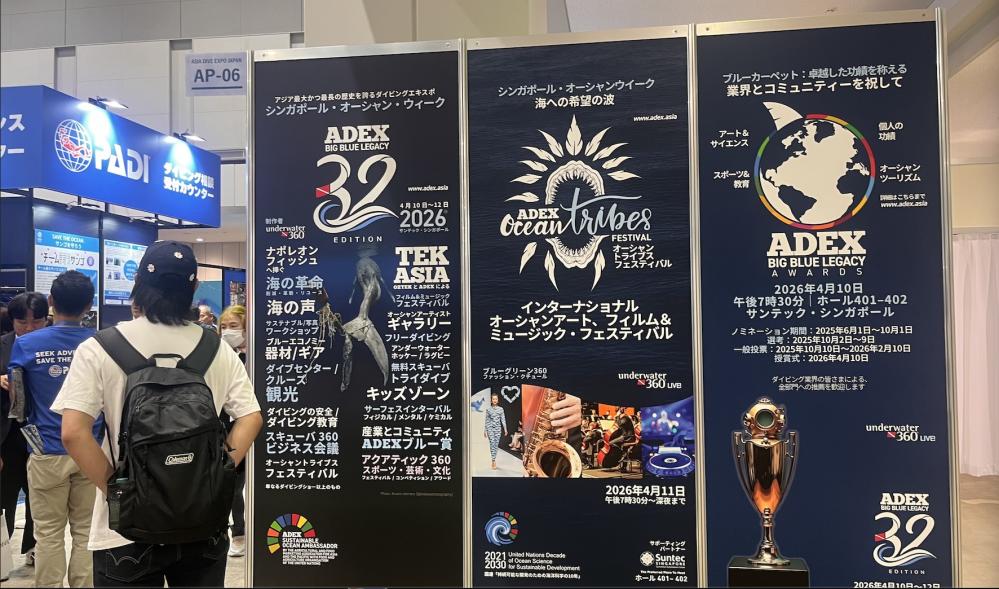10 things you can do to get Chinese dive market-ready
Preparing for Chinese guests doesn’t require a major overhaul. Even small adjustments can make a big difference in how welcome divers feel and how likely they are to return or recommend you.
The Chinese dive tourism market is expanding rapidly, with more new divers being certified and more outbound trips each year. For many operators, the opportunity is clear — but the challenge is knowing where to start. The good news is that preparing for Chinese guests doesn’t require a major overhaul. Even small adjustments can make a big difference in how welcome divers feel and how likely they are to return or recommend you.
Here are 10 practical steps, arranged from the easiest wins to more advanced strategies, that any resort, liveaboard, or dive shop can take to become more Chinese market-ready.
1. Use High-Quality Promotional Photos
Chinese divers are highly active on social media platforms such as Xiaohongshu and WeChat Moments, where sharing is part of the travel experience. Attractive photos of your rooms, facilities, meals, and underwater highlights not only help with online visibility but also encourage guests to “check in.” You don’t need a professional camera — even a phone works well if you let natural light into the room and aim for bright, warm shots. Every guest photo shared online is free promotion to their network.
2. Offer Small Comforts from Home
After a long day of diving adventure, many travellers appreciate something familiar. It doesn’t have to be a full Chinese menu — small touches like instant noodles or miso soup packets can make guests feel cared for and help them recover after a tiring day. These details show you’ve thought about their needs, and often become the little things they remember most.

BBQ, seafood, steak… food is a universal language. Just remember: Chinese guests value hot meals!
3. Provide Chinese-Language Materials and Signage
Clear communication reduces stress and builds trust. Simple translations for welcome signs, menus, or safety notices show attentiveness and make guests feel more comfortable. Even without full translations, visual aids help — a Chinese marine life ID book or a printed dive site map with Chinese labels can bridge the gap quickly and effectively.
4. Enrich Non-Diving Activities
Many Chinese divers are used to intensive dive schedules of 3–5 dives a day, especially on liveaboards or in Southeast Asia. If your destination offers a more relaxed pace, make sure guests see the value in the time between dives. Highlight unique experiences such as scenic excursions, cultural workshops, or wellness options that add richness to the trip. This not only sets the right expectations but also shows that fewer dives can mean a more balanced and memorable holiday. And for guests traveling with non-diving companions, these activities provide meaningful options that keep the whole group engaged.
5. Leverage Chinese-Speaking Staff
Hiring a full-time Chinese staff member can feel like a big investment, especially if you are still testing the market. A practical first step is to make the most of existing resources by bringing in bilingual dive guides or staff who can support Chinese guests as part of their normal role. This keeps costs within your existing budget while giving you valuable insights into the market. Even partial support — such as having someone available for check-in, safety briefings, or emergencies — can significantly improve guest comfort and trust, and helps you gauge demand before committing to long-term hires.

Bilingual staff can serve existing guests and attract new markets.
6. Align Promotions with Chinese Holidays
Chinese travellers often have limited annual leave, so their trips are planned around fixed holiday periods. While the long breaks like Chinese New Year and Golden Week allow for extended travel, most opportunities come from shorter windows of just a few days. Offering 4–5 day packages makes it easier for divers to fit a trip into their schedule. Creating promotional messages around these holidays — even simple reminders that you have availability — helps capture attention at the exact time people are planning.
7. Engage at Asian Dive Shows
Events such as the Dive Resort Expo are key meeting points for Chinese divers. Participating gives you face-to-face exposure, builds trust, and allows divers to connect directly with your brand. But even if you don’t have the budget to attend, you can still be part of the action by preparing a show promotion and sharing it with your Chinese agents, who can broadcast it on your behalf. This keeps your brand visible around the show and connected to the buzz, whether or not you are physically present.

Tourism Tropical North Queensland, Spirit of Freedom, and HelloDive joined forces to showcase Cairns as the ultimate outdoor destination at Shanghai DRT 2025.
8. Enable Convenient Payment Options
In China, mobile payments dominate daily life. Offering Alipay and WeChat Pay makes the booking process seamless and trustworthy for Chinese guests, while removing the friction of credit card or cash transactions. If direct integration feels complex, a simple workaround is partnering with a Chinese agent who can accept these payments on your behalf — an easy first step that signals you understand your customers’ preferences.
9. Adopt Sustainable Practices
Awareness of marine conservation is growing among younger Chinese divers, and many now expect operators to reflect these values. You don’t need to change everything overnight — start with small, visible actions that show you are taking responsibility. Refillable water stations, cutting down on single-use plastics, or joining a local reef cleanup are all simple steps that demonstrate commitment. The key is to start somewhere and show guests that, just like them, you are learning and contributing to protecting the ocean.
10. Approach the Market with Respect
Winning in the Chinese market takes more than offering a product — it requires genuine commitment. Divers are quick to notice whether they are valued as guests or treated as just another transaction. Differences in culture and diving habits mean you will need to listen carefully, adapt your operations, and make adjustments as the market responds. Respect, sincerity, and continuous improvement are what build trust and loyalty.

Our founder, Simon Chen, visited Fiji and experienced the warmth of South Pacific hospitality.
Final Thoughts
Getting Chinese market-ready doesn’t mean changing everything overnight. Small, steady steps are often enough to make divers feel welcome and create lasting connections. At HelloDive, we support dive operators in taking these steps with confidence — from understanding traveller behavior to reaching the right audience through our media and booking channels. If you’re exploring the Chinese market, we’d be glad to discuss how we can help.

